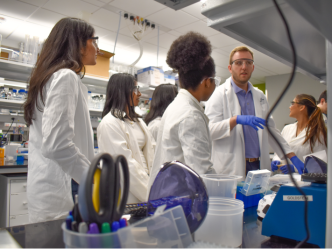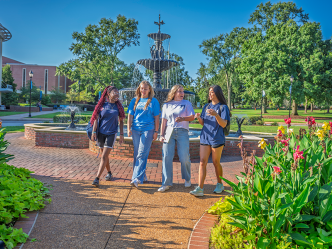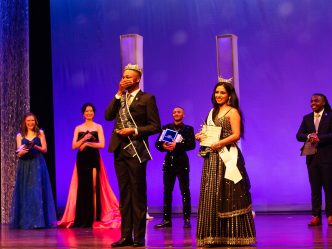When Dr. Michael Stefanek, Chair of the Department of Psychological Sciences, was starting his career, a study came out in The Lancet that looked at the benefit of support groups in cancer survival. Despite the fact that there were flaws in the data, the study got so much press that it almost became part of the social consciousness.
“There was this idea that developed that you could almost beat cancer by thinking your way out of it,” Stefanek said.
At the time, he was at Johns Hopkins Cancer Center, splitting his time between research and clinical work, so he saw firsthand how that perception caused friction between family members grasping at hope and patients, who couldn’t always remain positive in the face of the debilitating disease and its often equally debilitating treatments.
He never quite got over the implications of that study, and now he’s secured a grant to investigate making skepticism and critical thinking part of the curriculum across the University System of Georgia (USG).
Recently, Stefanek was awarded $5,000 from the Association for the Psychological Sciences, one of the two major national organizations in psychology, to finance a meeting of representatives from each of the 30 USG college and university psychology departments, as well as similar representatives from two large private universities (Emory and Mercer), and three historically black colleges (Clark Atlanta, Morehouse, and Spelman).
The funding will provide travel expenses to the meeting, which will be held at GRU sometime in the upcoming school year.
“We’ll probably have a couple of speakers and then a lot of breakout sessions about who’s doing what and where we might go with it,” he said.
Currently, no school in the USG has a course specifically dedicated to this kind of critical thinking, and very little systematic instruction is going on to assist students with learning to distinguish science from pseudoscience.
“This would hopefully give people a little bit more of a skill set about how to tease out and parse that information and make choices,” he said.
As for how the classes might develop, Stefanek is keeping an open mind.
“On one hand, it would be nice to do it at a lower level so students can take that information as they move through their major, whether it be psychology or biology or physics,” he said. “On the other hand, it makes sense to provide it at a major level so you’re focusing on people in your discipline or related disciplines.”
He said he could envision engaging the chemistry and physics departments to discuss differences between alchemy and chemistry, cold fusion and cold fission, or the biological sciences department to discus global warming or evolution. Likewise, the course might address how “cancer cures” are promoted with little or no evidence of benefit.
While classes would focus on the sciences, he said the skills are readily transferable to all areas of life.
“It would have worth not only in terms of looking at mainstream medicine versus alternative medicine and how you might weigh whether there’s some validity to one approach or the other, but also in terms of everyday life and making decisions about a commercial on TV or a political ad,” he said.
 Augusta University
Augusta University



